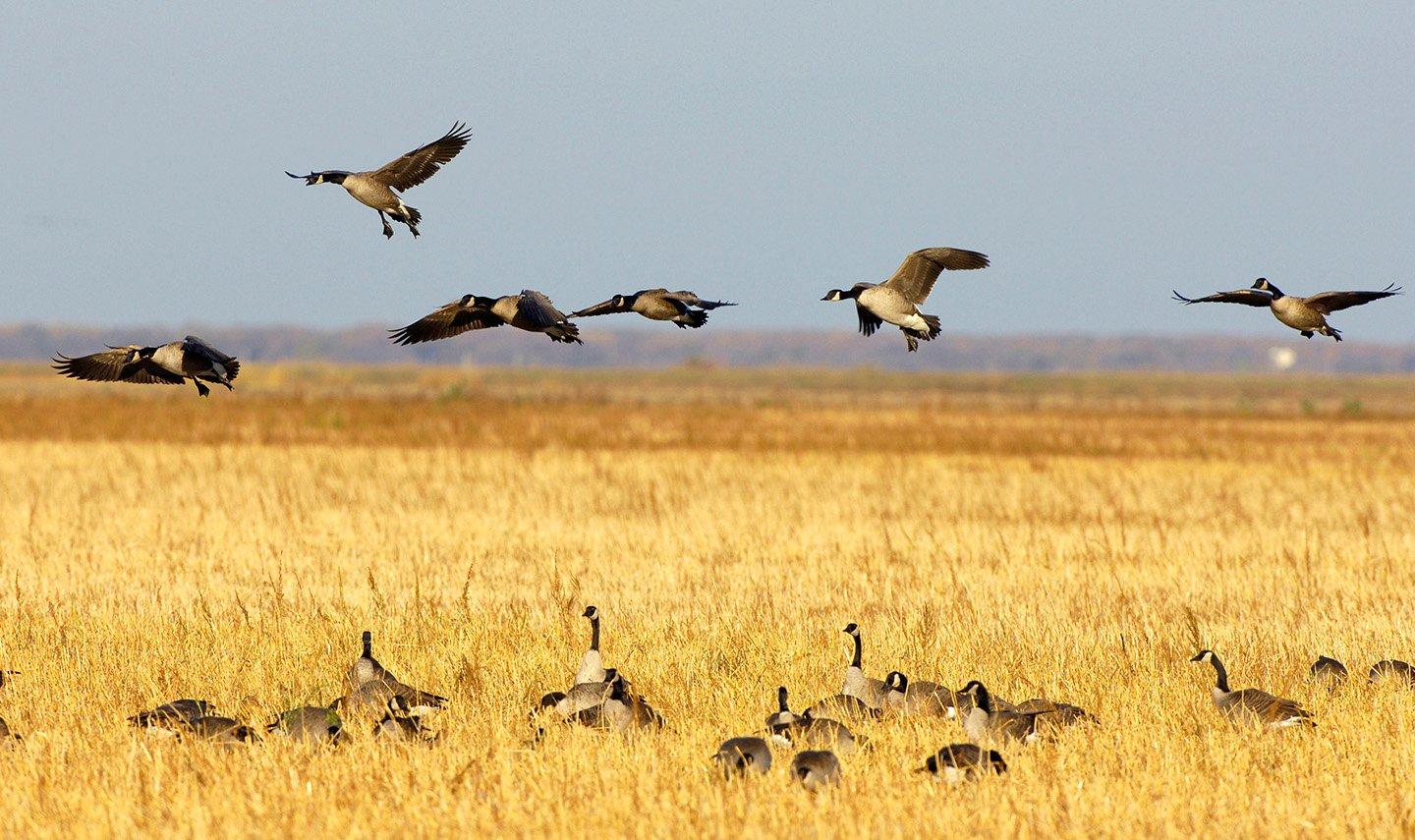Blindly accepting conventional waterfowling wisdom can burn you during hunts
Like many other outdoor pursuits, waterfowl hunting spawns fallacies that folks regard as gospel. And only hard experience exposes those mistaken beliefs.
My buddies and I are no different. For years, we bought into many misconceptions simply because experienced waterfowlers repeated them. But ducks and geese ultimately reveal the truth — often in painful, comic fashion. Consider these examples.
Those Geese Won't Work
Honker hunting had been tough, as we'd seemingly harassed the same stale, wary birds for two weeks, with marginal success. But after several days of intense pre-work scouting, my friends and I located some geese in a nearby wheat field. That day at the office, we hatched the plan, but one of our group demurred.
I think I'm gonna pass, he said. You guys can go if you want, but they're not going to work.
Fair enough. But two friends and I hit the field the next morning, stubbling our blinds to a ridiculous extent to hide in the bare field, which looked like the surface of a pool table. And we killed a three-person limit in less than an hour.
Our absentee friend took a lot of heat that week. Even today, he's sick of hearing, They're not gonna work.
Bluebills Aren't Vampires
I'd heard some hunters talk about ducks and geese feeding at night, but I never believed it. They're crepuscular animals, I thought. They'll fly at dawn and dusk, but they roost at night.
But one year, the bluebills on my favorite lake suddenly abandoned the patterns they'd favored for 20-some seasons and began acting in strange fashion. Every evening, they'd pile into huge rafts a few hundred yards offshore during the final hour of daylight. But every morning when we tried to greet them, they'd disappeared.
Initially, I assumed the ducks were roosting at those spots. Then I realized they were associating with large rock reefs full of zebra mussels and other goodies. Forehead slap. They were feeding at night — probably in response to boating and hunting pressure — and then abandoning those areas at dawn and then loafing all day in vast areas of open water. And that pattern has held steady for five years.
Nowadays, we typically hunt bluebills during afternoons. And we get more ducks — and sleep.
Honkers Won't Land in Holes
It promised to be a great opener. A buddy had found about 150 resident honkers in a 30-acre wheat field we had permission to hunt. The only question was where to set up.
I'd go right at that high hump toward the south, I said. That field dips down considerably in the middle, and geese won't land in holes.
So we set up along the southern fence line. And about a half-hour after daylight, a huge throng of geese approached, circled, descended and — wait for it — landed in the deep low spot in the middle of the field, about 100 yards from our spread. A clumsy ambush attempt and several hyphenated cuss words followed.
The day wasn't a complete loss. We shot a few honkers later and at least enjoyed the opener. But when we hunt together now, my buddies always remind me that geese absolutely won't land in holes.
I Won't Need Toilet Paper
Ahem. Well, that's all the space we have for this blog. Decorum prohibits me from revealing how I learned this lesson. It won't net you more ducks and geese, but it's vital to have in your gear.
Click here for more Realtree waterfowl hunting content. And check us out on Facebook.








